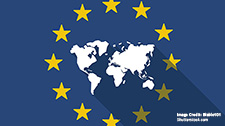The Rise of Transnational Russian-Speaking Organized Crime
Walter Kegö and Aïssata Maïga
Transnational Russian-Speaking Organized Crime is a growing scourge for the whole of Europe. Taking advantage of its unique “assets,” it also exploits eased border controls, new technologies, and legal loopholes. As such, it is difficult to combat with only isolated successes having been scored amid a lack of sustained and coordinated strategies between European countries and agencies. If it is to be prevented from flourishing further, more concrete steps need to be taken to combat its rise.
Related Publications
-
Europe, It’s Time to Wake Up on Research Security
Europe’s innovation scene is vibrant. It leads in automotive tech, green energy, and critical dual-use technologies. Yet, for all its brilliance, the EU is leaving its doors wide open. State-sponsored actors […]
-
The US and EU, and the Emerging Supply Chain Network: Politics, Prospects, and Allies
The Global Supply Chains have evolved from simply logistical achievements to being the bedrock of the global economy. Driven by technological advances and geopolitical shifts, this transformation underscores the critical […]
-
Navigating the Indo-Pacific: How Australia and the EU Can Partner for Peace, Stability, and Prosperity
To navigate the choppy waters of the Indo-Pacific, the EU and Australia must be on the same wavelength regarding shared interests in rules, values, and an open and liberal economic […]
-
Indo-Pacific as a Strategic Imperative for the EU: Whither Australia?
No global actor can afford to fall short in contributing to a stable, peaceful, and prosperous Indo-Pacific—this particularly applies to a somewhat distracted European Union (EU). The EU should become […]
-
China as a Black Sea Actor: An Alternate Route
China’s international role has expanded rapidly in the last decades, and the Greater Central Asian region, Europe, and the Middle East, to which the Black Sea region (BSR) connects, are […]




